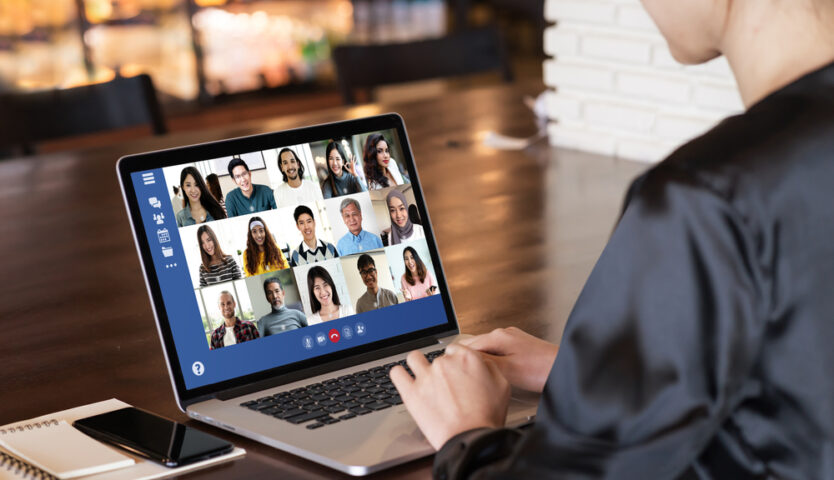The Legalities of Recording Video Conferences
Posted by on Mar 22, 2021 in Blog
With our society continually adjusting to “new norms”, video conferencing software such as Zoom, Microsoft Teams and Skype have allowed many industries to continue face-to-face interactions and meetings while maintaining distance.
It only takes one quick Google search of “funny Zoom fails” to realize that people are recording these meetings and posting them on the web.
As prevalent and accessible as these videos are becoming, it begs the question: Is it legal to record a video conference call?
To best answer that question, it’s important to understand how the law works in Canada regarding the secret recording of private conversations.
Recording Private Conversations in Canada
Recording a private conversation is generally lawful in Canada as long as you are actively part of the discussion. However, there are consequences to consider.
For instance, recording a private conversation might constitute a breach of confidentiality or privacy. This could lead to dismissal by your employer (if the recording is work-related).
Also, when you publish conversations to the public without the other party’s permission, you potentially expose yourself to legal liability – even if the information is accurate.
So while this law does not specifically pertain to video conferencing, it does apply to any recorded conversations whether they are in video or audio format.
Can a Zoom Host Legally Record a Video Conference Call?
One of the functions available with Zoom, and many other video conferencing programs, is the ability for the host to record meetings.
However, there are plenty of software options that will allow you to record your screen whether you are the host or not, so that needs to be taken into consideration as well.
Even though you can legally record a conversation in which you are involved, there are some legal obligations you need to first consider in order to protect yourself and the participants of the video conference.
Obtaining Consent to Record a Meeting
Video conferences are still subject to the laws that protect an individual’s privacy. The person who wants to record the meeting or conversation should seek the informed consent of all participants.
This requires giving the participants details about the purpose of recording the meeting and asking for their consent to have the recording used for that purpose.
Consent can be considered explicit or implied. Explicit consent requires the participants to express their consent to be recorded; implied consent assumes the participant is consenting to the recording if there is an overt indication that the meeting is being recorded.
The Recording is Considered a Record or Information Asset
Video files should be treated as sensitive information and stored in a secure recordkeeping system.
Even if the participants do not audibly share personal information and details, a video recording can contain sensitive aspects of their personal life such as what they look like, what they sound like, the interior of their home, etc.
Appropriate protections are important in order to prevent unauthorized access, disclosure or loss of information.
Sharing Recorded Video on Social Media
When it comes to video meetings, the host technically “owns” the recording itself as a derivative work.
However, sharing videos of private meetings and conversations can be considered a privacy breach.
In fact, a case in New Zealand saw the courts award $168,000 in damages for breaching privacy when employers took a screenshot of an employee’s private Facebook post.
Although there are no clear-cut rules regarding posting recordings of video conferences to social media such as Facebook, context can be crucial in deciding if the action was illegal or not.
Reasons for Recording Video Conferences
If there are so many legal implications for recording video conferences, why would anyone want to?
Not all Zoom recordings are made with ill-intent. For instance, managers may prefer to record meetings in case some individuals are unable to participate.
Or they may prefer to record in lieu of having someone take minutes for the meeting. Therefore, any information discussed can be referred to in the future.
Lastly, information meetings can be helpful in building a database of knowledge. If a meeting includes an educational component, it may be saved as a recording for future reference.
What Are Zoom’s Privacy Policies?
As mentioned, there are many programs available to facilitate video conferencing. Recently, however, Zoom seems to be the most popular.
Yet it is not without its own security issues.
First of all, Zoom will collect and track your account information. Their privacy policy states that while they do not sell your information they do share it with third parties, such as Google and Facebook, for “business purposes”.
Before you panic, it’s important to note that many online entities, including Facebook and Google do this as well.
As far as security goes, Zoom uses TLS (transport layer security) encryption which is the same encryption used to protect websites.
This does not stop malicious individuals from “Zoombombing,” which involves disrupting video conferences to share disturbing material using a Zoom screen share feature and publicly shared Zoom meeting link.
Before using any video conferencing software or program to facilitate meetings and share private information, it’s important to familiarize yourself with their privacy policies.
The Bottom Line
While there is nothing inherently illegal with recording a video conference but what you do with that recording could have legal consequences.
To protect yourself from any liability, always obtain the express consent of all participants before recording any online meetings.
Otherwise, as long as you involved in the recorded conversation, the actual act of recording is not against the law.
If you regularly host and record video conferences, you can always get in touch with our team of lawyers to further discuss your rights and liabilities.
Otherwise, if have participated in a video conference that was recording and shared against your consent, we can advise you on that situation as well.
It’s important to know what your rights are. Get in touch with Heritage Law today!






